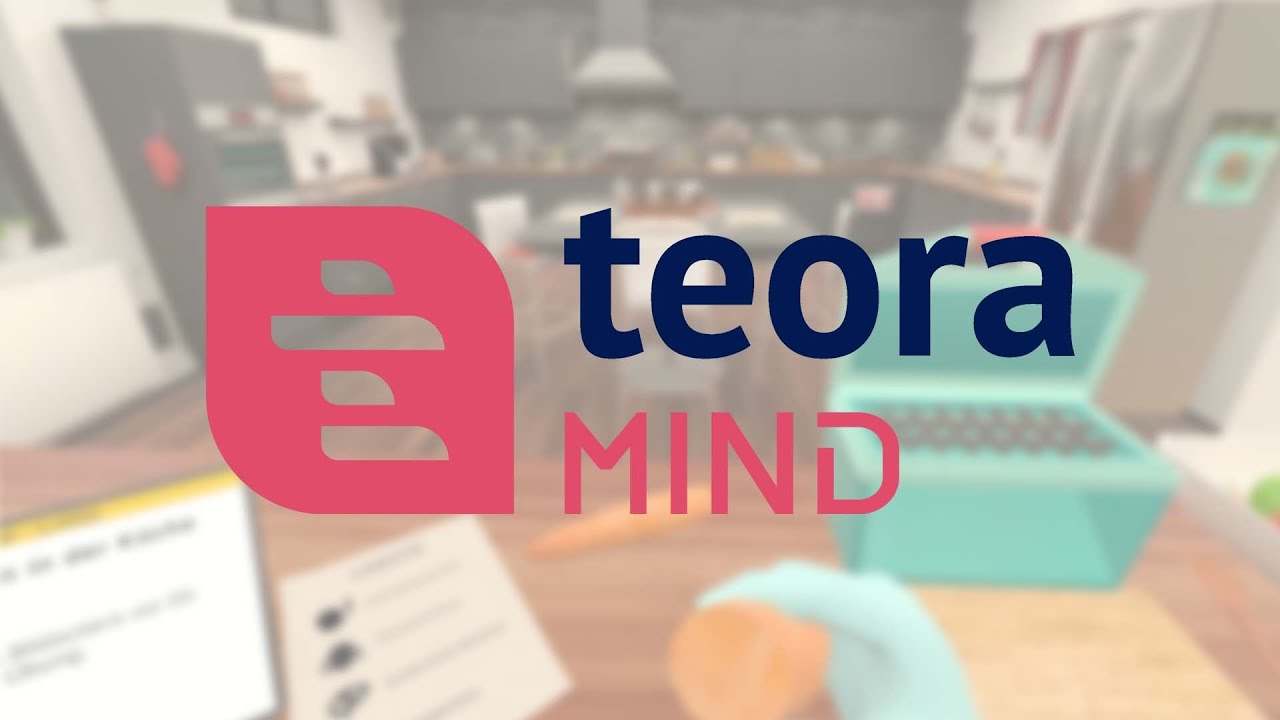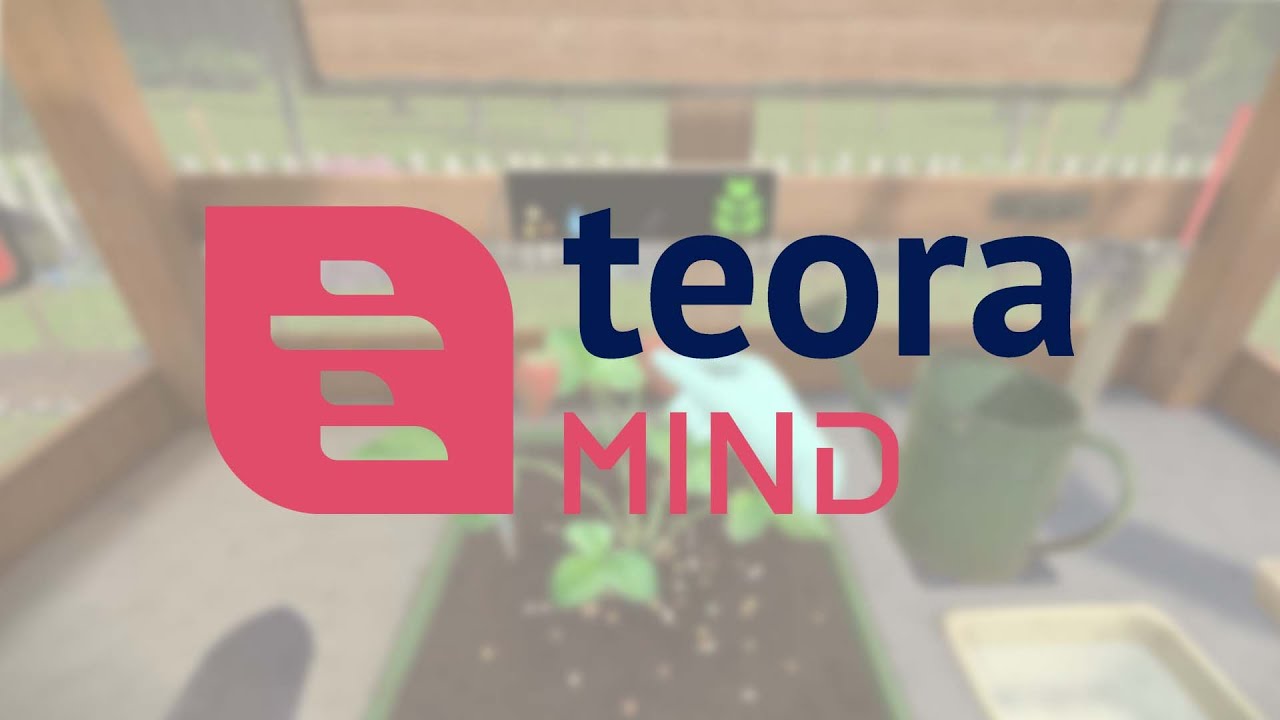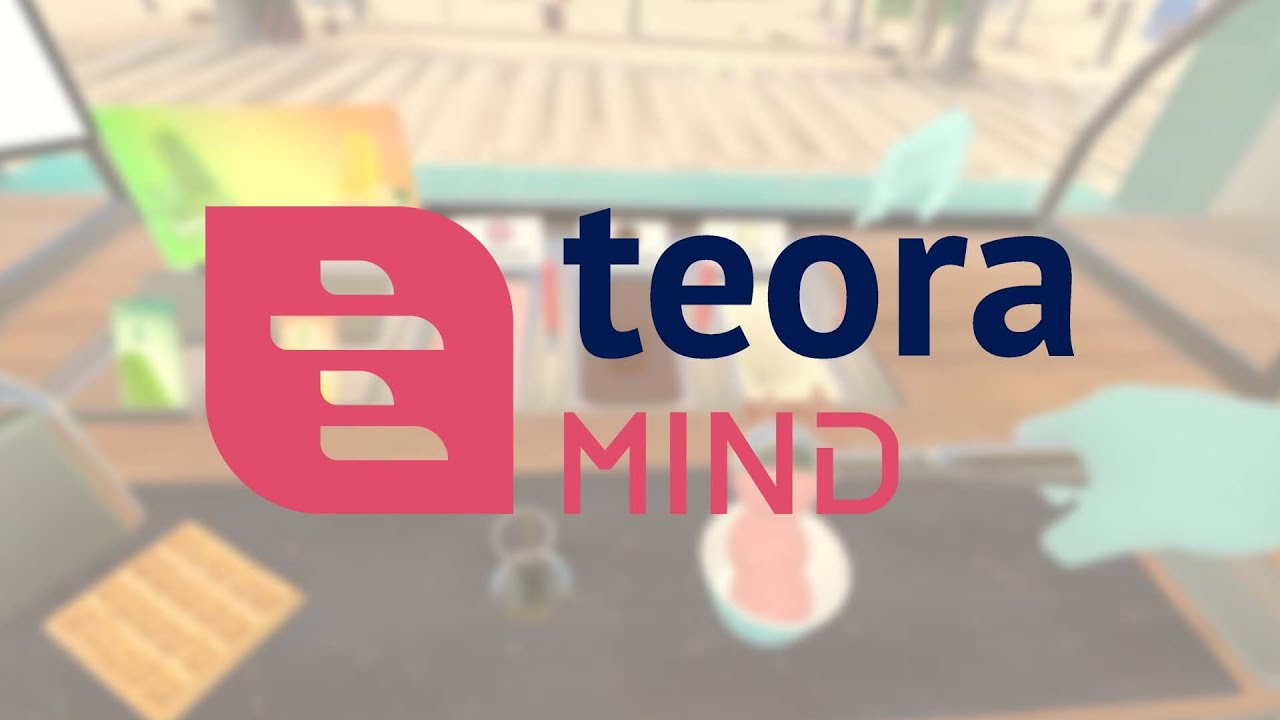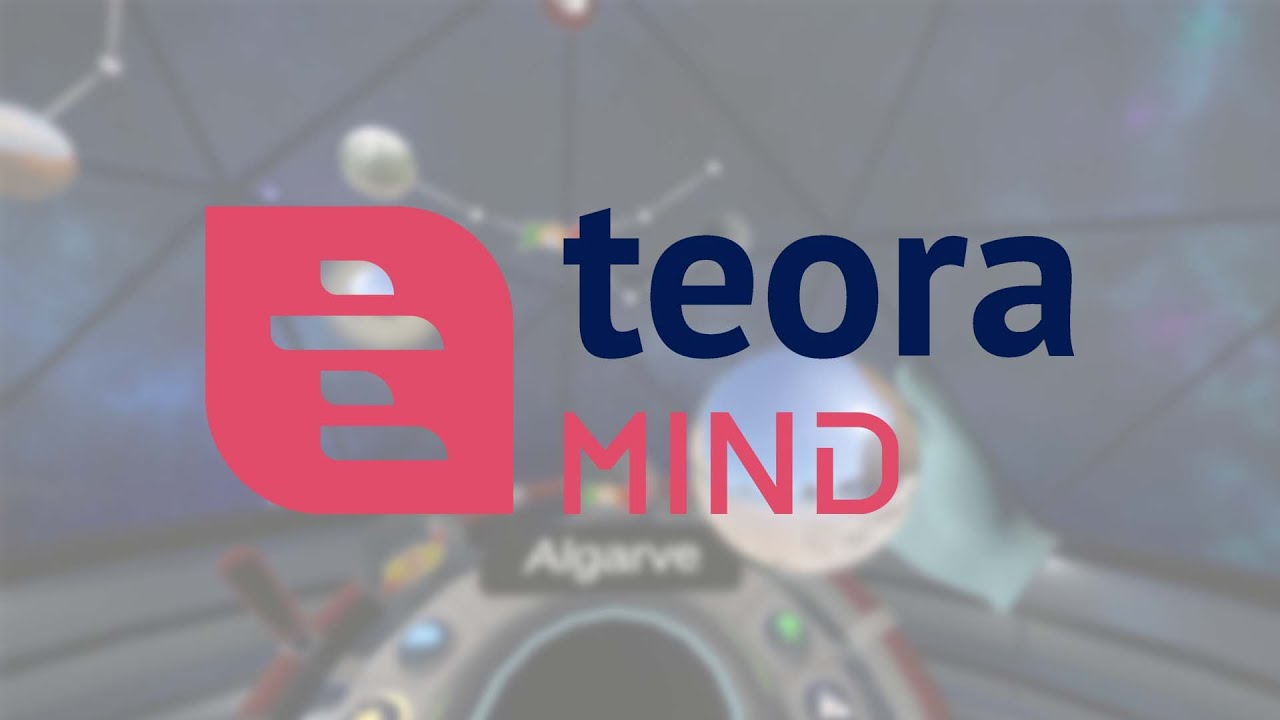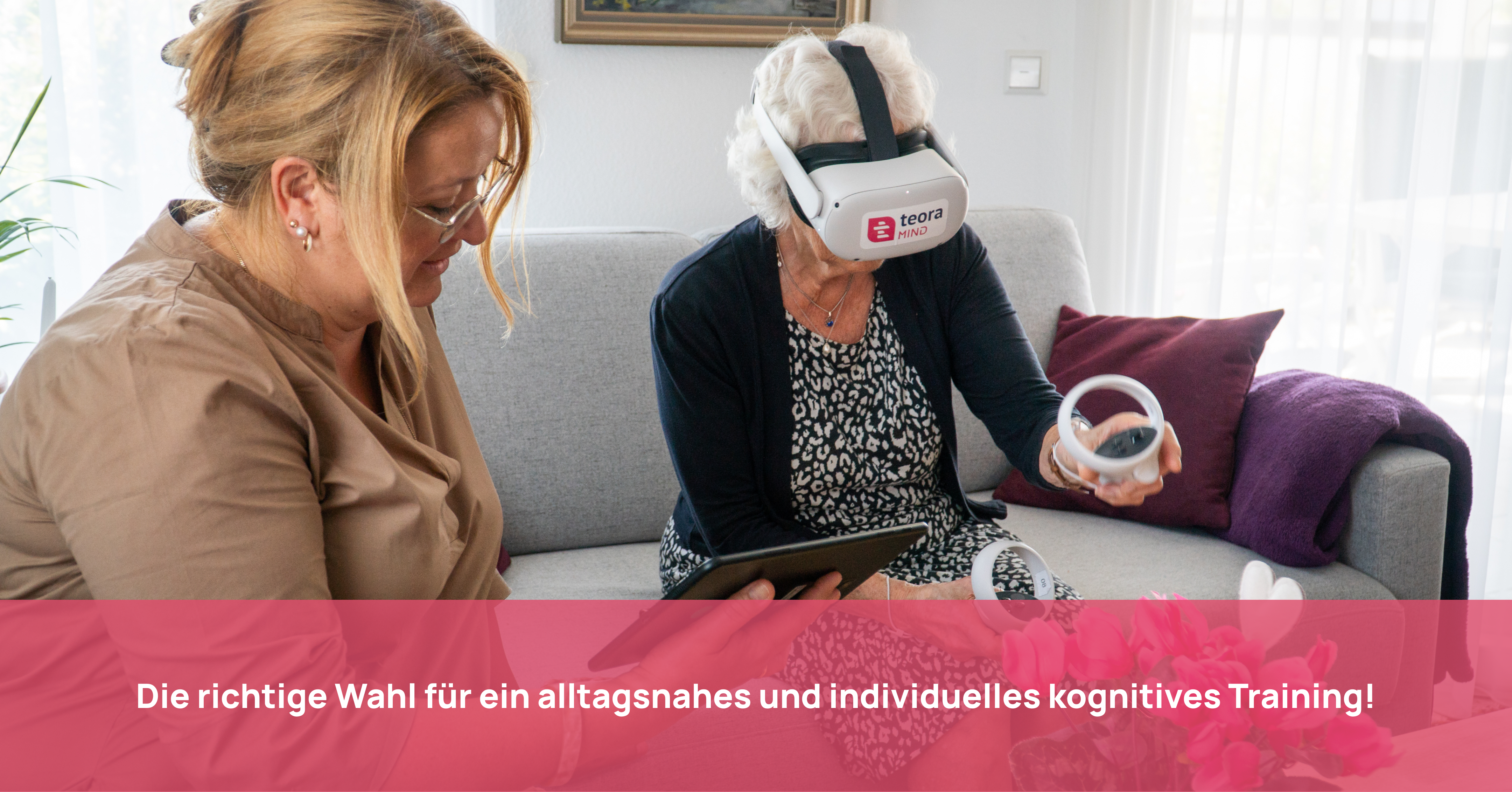
Wenn der Alltag zur Herausforderung wird
Schlaganfälle, Epilepsie, Schädel-Hirn-Traumata oder andere neurologische Erkrankungen wirken sich häufig auf die geistige Leistungsfähigkeit aus. Zunehmende Vergesslichkeit, Konzentrations- und Aufmerksamkeitsprobleme lassen den Alltag zu einer Herausforderung werden. Gewohnte Tätigkeiten, die vorher völlig selbstverständlich waren, fallen nun schwer oder sind unmöglich. Jetzt wird alltagsnahes kognitives Training benötigt.
Lerntransfer vom Training in den Alltag
Die aktuell weitverbreiteten kognitiven Trainings fokussieren sich allerdings auf abstrakte Übungen. Es werden z. B. Kennzeichen auswendig gelernt, Punkte gezählt oder Labyrinthe gelöst. Betroffenen fällt es häufig schwer, diese einseitigen Aufgabenstellungen auf die komplexen Probleme des Lebens zu übertragen. Sie sind zu weit von der Realität entfernt. So hat beispielsweise das Lösen eines Labyrinths wenig damit zu tun, vor einer Kaffeemaschine zu stehen und nicht mehr zu wissen, wie sie richtig zu bedienen ist. Solche Transferleistungen kann unser Gehirn nur schwer oder überhaupt nicht erbringen. Gleichzeitig ist alltagsbasiertes kognitives Training unter realen Bedingungen oft schwierig umzusetzen. Viele der Tätigkeiten sind potenziell gefährlich, überfordernd oder schwer kontrollierbar.
Verbesserung der Alltagskompetenz mithilfe von VR
Mit teora mind trainieren wir realitätsnahe Problemstellungen in einer kontrollierten virtuellen Umgebung. In verschiedenen Szenarien kann beispielsweise Kaffeekochen, das Organisieren des Kühlschranks oder Gartenarbeit trainiert werden. Somit können Sie in einer sicheren Umgebung Situationen trainieren, die ihnen täglich begegnen und in denen mögliche Gefahrenquellen wie heißes Wasser in der Kaffeemaschine nicht vorkommen. Der Überforderung wirken wir durch Abstufungen des Schwierigkeitsgrades unserer Übungen entgegen. Alle Szenarien wurden so gestaltet, dass sie ein großes Leistungsspektrum – von sehr einfach bis hin zu sehr schwierig – abdecken und an die individuellen Bedürfnisse des Betroffenen angepasst werden können. Zusätzlich sorgt der Spielcharakter für eine hohe Motivation.
Küche
Trainieren Sie Aufmerksamkeit, Konzentration und Gedächtnis in einer der folgenden Übungen in der Küche:
- Einkäufe einräumen
- Kühlschrank aussortieren
- Obstsalat zubereiten
- Kaffeekochen
Probieren Sie es aus!
Garten
Handlungsplanung trainieren und dabei Pflanzen säen, gießen und Tomaten oder Erdbeeren ernten? Willkommen in unserem Garten!
Dort erstellen Sie zunächst einen Plan, in welcher Reihenfolge z.B. eine Erdbeer-pflanze gedüngt, gegossen oder geerntet wird. Diesen Plan führen Sie anschließend aus. Die Anzahl der Planungsschritte ist dem ausgewählten Schwierigkeitslevel angepasst.
Strandbude
Trainieren Sie Ihr Gedächtnis und Ihre Handlungsplanung beim Verkaufen von Eiscreme, kalten Getränken oder Milchshakes. In unserer Strandbude üben Sie, mehrstufige Aufträge korrekt umzusetzen. Im Anschluss an jede abgeschlossenen Bestellung trainieren Sie darüber hinaus den Umgang mit Bargeld.
Entspannungsraum
Sie wollten schon immer Islands Wasserfälle oder die felsigen Küsten Lanzarotes sehen? Kommen Sie nach einem anstrengenden Tag in unserem Entspannungsraum zur Ruhe.
Virtual Reality erleichtert den Lerntransfer
Virtual Reality Technologie ermöglicht es uns dabei, eine immersive Therapieumgebung zu schaffen. Es wird das Gefühl vermittelt, dass wir uns selbst in der Virtuellen Umgebung befinden und diese Umgebung real ist. Wir haben das Gefühl, uns beispielsweise wirklich in einer Küche zu befinden und Kaffee zu kochen. Somit wird der Lerntransfer erleichtert und das Gelernte lässt sich auch im Alltag abrufen. Denn wenn ich nach dem Training mit teora mind Kaffee in meiner eigenen Küche kochen möchte, sind die Handlungsschritte bis zur fertigen Tasse Kaffee dieselben wie in der virtuellen Realität. Das hat dazu geführt, dass Virtual Reality verstärkt Einzug in die Medizin hält. Zahlreiche Studien belegen bereits das hohe Potenzial in verschiedenen Anwendungsbereichen.
teora mind ist studiengeprüft
Die Therapieanwendung teora mind basiert auf aktuellen wissenschaftlichen Forschungsergebnissen und wurde gemeinsam mit Behandelnden und Betroffenen praxisnah entwickelt. Darüber hinaus führen wir eigene Studien durch. In einer Studie haben wir bereits herausgefunden, dass Virtual Reality bzw. die Behandlung damit von älteren Erwachsenen im Allgemeinen, aber auch von Schlaganfallpatient*innen im Speziellen, gut angenommen wird. Unabhängig von einem vorherigen Kontakt mit Virtual Reality konnten sich die Teilnehmer*innen schon nach kurzer Zeit gut in teora mind zurechtfinden.

In einer klinischen Studie haben wir außerdem untersucht, welche Ergebnisse das kognitive Training mit teora mind im Vergleich zur Behandlung mit computergestütztem Training erzielt. Nach 4-6 wöchiger Therapie zeigte die VR-Gruppe deutliche Verbesserungen in den Bereichen Planung und Problemlösung. In der Kontrollgruppe mit Standardtherapie wurden keine Verbesserungen festgestellt. Beide Gruppen starteten auf demselben Ausgangsniveau. Die Ergebnisse legen nahe, dass VR-Training mit teora mind eine sichere und wirksame Behandlungsoption für Patienten*innen mit kognitiven Defiziten darstellt.
teora mind ist ein zertifiziertes Medizinprodukt
Im Gegensatz zu den gängigen kognitiven Trainings, handelt es sich bei teora mind um ein zertifiziertes Medizinprodukt. teora mind ist das erste und einzige gemäß der MDR in der EU zugelassene Medizinprodukt, das zur Behandlung kognitiver Defizite in der Neurotherapie eingesetzt wird.
Auf Basis dieser Zertifizierung tragen wir das CE-Zeichen gemäß der EU-Richtlinien 2017/745 (MDR) und haben ein zertifiziertes Qualitätsmanagement-System eingeführt, um unsere hohen Ansprüche an Sicherheit und Qualität zu gewährleisten.
Indikationen für teora mind
teora mind wird bei Menschen angewendet, die aufgrund von kognitiven Defiziten maßgeblich in ihrer Selbstständigkeit, Selbstbestimmtheit oder ihrer Alltagskompetenz eingeschränkt sind. Diese kognitiven Einschränkungen stehen im Zusammenhang mit Erkrankungen, die das Nervensystem beeinträchtigen. Dabei könnte es sich bspw. um Schlaganfälle, Parkinson, Mild Cognitive Impairment oder Schädel-Hirn-Traumata handeln.
Wenn Sie teora mind über die von uns definierten Anwendungsbereiche hinaus einsetzen möchten, sprechen Sie uns bitte an.
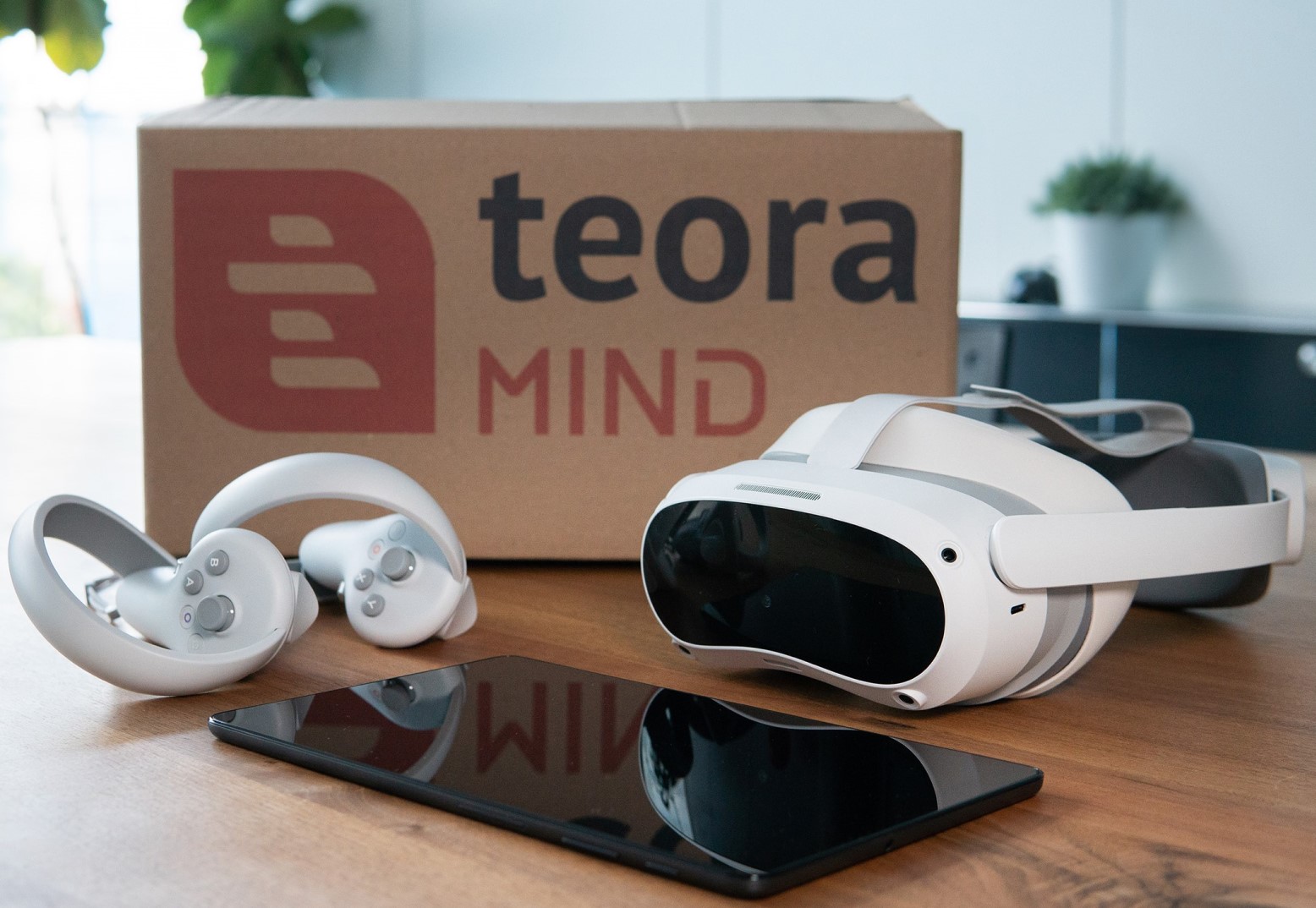
Bestandteile des teora mind Systems
Die Therapiesoftware teora mind wird gemeinsam mit der benötigten Hardware geliefert. Im Gesamtsystem enthalten sind:
- Mobile VR-Brille — Von uns verwendete VR-Brillen sind tragbar und können ortsunabhängig ohne einen Computer verwendet werden.
- Controller — Wir liefern standardmäßig zwei Controller. Alle Übungen sind bei Bedarf aber auch einhändig durchführbar.
- Tablet — Das Tablet ermöglicht ein Echtzeit Monitoring der Übungen des Nutzers. Was in der VR Umgebung geschieht, kann somit vom behandelnden Arzt mit angesehen und der Therapieplan entsprechend angepasst werden.
VR-Brille und Tablet sind bereits so präpariert, dass sie vor Trainingsbeginn lediglich eingeschaltet werden müssen. Zusätzliches technisches Equipment wird nicht benötigt. Lediglich ein stabiles und passwortgeschütztes W-LAN- Netzwerk ist notwendig. Die Internetverbindung ermöglicht die Übertragung von der VR-Brille auf das Tablet des Behandelnden bzw. eine unterstützende Person.
Remote-Therapie mit dem teora System
Darüber hinaus erhält Ihr Behandelnder einen Zugang zu teora platform. Dabei handelt es sich um eine Web-App, über die Ihre Therapie digital begleitet werden kann. Das bedeutet, es ist diesem z.B. möglich, Ihnen einen individuellen Therapieplan zu erstellen und Ihre Fortschritte mitzuverfolgen. Das ermöglicht es Ihnen (sofern Sie dies wünschen), die Therapie nach einer Einführung zuhause fortzusetzen.
Ihre Vorteile
- Training alltagsbezogener Problemstellungen
- Einfache und anwenderfreundliche Bedienung
- Ortsunabhängiger Zugang zu kognitiver Therapie — auch von Zuhause aus
- Höhere Therapiefrequenzen
- Studiengeprüfte Inhalte
- Höhere Motivation dank spielerisch aufgearbeiteter Inhalte
- Flexible Begleitung und Unterstützung durch einen Behandelnden
Ihr Weg zu teora mind
Da es sich bei teora mind um ein erklärungsbedürftiges Produkt handelt, ist es wichtig, dass Sie eine Einweisung von geschultem Personal erhalten. Aus diesem Grund können Sie teora mind nur über Ärzt*innen oder Therapeut* innen beziehen. Besprechen Sie die mögliche Therapie mit Ihrem behandelnden Arzt oder Ihrer Ärztin. Falls diese noch nicht mit uns zusammenarbeiten, kommen wir gerne zu einem Beratungstermin in der Praxis vorbei!
Weitere Informationen
In unserer Broschüre finden Sie alle Informationen zusammengefasst auf einen Blick. Gerne können Sie diese mit Ihren Angehörigen oder Behandelnden teilen.
FAQ
Wieso ist es sinnvoll, Virtual Reality für die Rehabilitation zu nutzen?
Virtuelle Realität bietet mehrere Vorteile für die Rehabilitation. Zum einen ist es möglich, potenziell gefährliche Situationen ohne tatsächliche Gefahr immer wieder zu trainieren. Zum anderen können zahlreiche Tätigkeiten im Alltag nur schwer mehrfach hintereinander trainiert werden, wohingegen das in Virtueller Realität einfacher möglich ist.
Darüber hinaus ist Virtuelle Realität durch die mobilen technischen Geräte ortsunabhängig. Zahlreiche wissenschaftliche Publikationen legen die Verwendung von Virtueller Realität zur Therapie und Behandlung verschiedener Erkrankungen nahe. Wenn Sie mehr über diese wissenschaftliche Grundlage erfahren möchten, lesen Sie gerne hier weiter.
Hat die Therapie in Virtual Reality Nebenwirkungungen?
Einige Menschen berichten bei den ersten Malen der Anwendung von virtueller Realität von leichter Übelkeit, leichten Kopfschmerzen oder leichtem Schwindel. Diese Symptome nennt man auch Motion-Sickness. Sie treten manchmal auf, wenn das Gleichgewichtsorgan und die Augen zwei unterschiedliche Signale an das Gehirn melden. Beispielsweise „sagt“ das Gleichgewichtsorgan: „Wir bewegen uns nicht – wir sitzen“ und die Augen melden „Wir fahren Achterbahn und bewegen uns sehr schnell nach vorne“. Dieser Konflikt zwischen Augen und Gleichgewichtsorgan kann im Gehirn zu „Verwirrung“ und zu Übelkeit, Schwindel oder Kopfschmerzen führen.
Wir achten jedoch bei jeder unserer Anwendungen darauf, keine widersprüchlichen Signale zwischen Augen und Gleichgewichtsorgan zu erzeugen, um so das Risiko für Motion-Sickness maximal möglich zu minimieren.
Zu genaueren Informationen zu Nebenwirkungen lesen Sie bitte die Gesundheits- und Sicherheitswarnungen des Herstellers des VR-Headsets hier nach.
Welche körperlichen Voraussetzungen sollte ich zur Nutzung mindestens erfüllen?
Für die Nutzung müssen mindestens ein Arm und eine Hand beweglich sein.
Dazu gehört bei den derzeitigen Übungen auch die Fähigkeit, den Zeige- und den Mittel- oder Ringfinger willentlich zu beugen und zu strecken. Die Drehung des Kopfes um etwa 60° nach rechts und links ist notwendig. Die Nutzung mit einer Sehhilfe ist ohne Probleme möglich; Seh- und Wahrnehmungsfähigkeit auf beiden Augen ist jedoch elementar. Darüber wird ein intaktes Sprachverständnis sowie Lesefähigkeit benötigt.
Ich bin nicht sehr technikaffin. Kann ich teora mind trotzdem benutzen?
Bei der Entwicklung von teora mind haben wir großen Wert auf einfache Bedienbarkeit gelegt und unser gesamtes System ist darauf ausgelegt. Dementsprechend ist benötigte Software bereits auf Tablet und VR-Brille vorinstalliert. Sie müssen die Geräte nur noch einschalten.
Darüber hinaus haben wir zur Nutzung unseres Produktes in Kombination mit der VR-Brille bisher viele positive Rückmeldungen erhalten. Auch technisch weniger versierte Nutzer, die bspw. computergestütztem Training eher skeptisch gegenüberstehen, finden sich in der Regel schnell zurecht.
Gerne vereinbaren wir über Ihre Behandelnden eine Testphase, in der Sie sich selbst von der unkomplizierten Handhabung überzeugen können.
Bezahlt die Krankenkasse teora mind?
teora mind ist seit dem 01.02.2024 für Vollversicherte der INTER Versicherungsgruppe erstattungsfähig. Falls Sie bei einem anderen Anbieter versichert sind, informieren Sie sich bitte bei Ihrer Krankenkasse.
Zusätzlich arbeiten wir an einem Modellprojekt mit der Deutschen Rentenversicherung, das Ende dieses Jahres starten wird. So sollen Leistungen im stationären Reha-Bereich und der ambulanten Nachsorge zukünftig erstattungsfähig werden.
Kann ich teora mind auch als Privatperson nutzen?
Für die ausschließliche Nutzung im häuslichen Umfeld kann teora mind derzeit leider noch nicht von Privatpersonen erworben werden. Nehmen Sie dennoch gerne Kontakt mit uns auf, um mehr zu erfahren.
